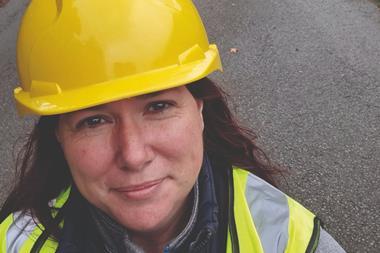In a month’s time, I shall be enjoying the singular privilege of delivering the Chapman Barrigan Lecture in memory of two remarkable women in the property industry: Honor Chapman, who died in 2009 after a successful career at JLL; and Trish Barrigan, who was a leading light in the fund management world, and a founder of Benson Elliott, before her premature death in 2020.

I won’t be talking about gender diversity, but rather a subject that was dear to Honor’s heart, namely the challenge our industry faces in convincing a doubting world that we can be trusted to look after our built environment and those who occupy it.
That means working to improve a reputation that has probably never been great, but certainly has not been improved by the Grenfell Tower tragedy, the squabble over leaseholding and ground rents, the tussle between landlords and tenants during and after the pandemic, and the general quality of much that has been delivered over the past 50 years.
Why should we worry about our reputation and the lack of trust it engenders? In a world where business is probably less trusted than ever, our industry is more reliant than most on the licence to operate given by our stakeholders through the planning system.
And if we cannot persuade our stakeholders to support what we do, then obtaining planning will become increasingly costly in terms of time and resources.
It is also undoubtedly the case that if we do not enjoy public support, then winning political support from both local and national governments for a supportive legislative and tax regime will become more difficult.
It is worth remembering that the close shave we had with Tony Blair’s government over its wish to ban upward-only rent reviews came about largely because MPs were finding their postbags filled with hostile representations from small businesses complaining about their unsympathetic landlords.
“If we cannot persuade our stakeholders to support what we do, then obtaining planning will become increasingly costly in terms of time and resources.”
There are a whole host of other reasons why reputation matters, but let’s turn to what we need to do about it. I believe a lot of the poor reputation the industry suffers is because very few people understand what we do and how we function.
Most people think real estate is only about housing, and if you show them a commercial building, they will have no appreciation of the role of a property investor or developer in acting as a modern-day ringmaster pulling together the finance, the architectural design, seeking planning permission, the construction and then the letting and management of it.
Nor do many people understand fully the role of real estate in the investment world – and that a good chunk of their pension comes from the rental revenues generated by a successfully leased building.
But while there are some brilliant and hugely socially responsible people in our property industry, there are those for whom quality and customer care do not seem to matter at all – just look at some of the shocking conversions from office to residential that have happened as a result of permitted development rights.
So, the answer seems to lie in a two-pronged approach: better information and education about what we do, but also a radical approach to assuring better behaviours and higher-quality product, particularly in the field of environmental performance.
The problem is that both require the industry to act in a more coordinated fashion and to be prepared to put effort and resources into a comprehensive action plan.
I campaigned for this while head of the British Property Federation, and I’m sure my successor Melanie Leech is no less enthusiastic. But while we have such a proliferation of representative bodies – each requiring their own subscriptions, overseeing committees of the great and good, and their share of the limelight – we will continue to sell ourselves short as an industry.
Reputation once lost is difficult to regain, and building trust in what we as an industry can do for society and our economy seems to me to be the priority on which we should focus. We need collectively to invest time and resources in developing some new, radical thinking – a process that I am sure Honor and Trish, were they still with us today, would have supported.
Liz Peace is chair of Real Estate Balance
The Chapman Barrigan Lecture takes place at 6pm on 19 April at Goldman Sachs’s offices on Shoe Lane. Contact events@wlcreative.org.uk if you would like to attend.
































No comments yet